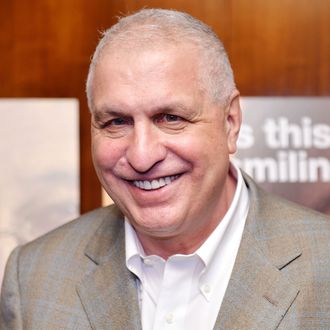
Anyone who considers him- or herself a true-crime fan has seen Errol MorrisÔÇÖs seminal documentary The Thin Blue Line, which unearths the truth about the 1976 murder of Officer Robert Wood and the subsequent conviction of Randall Adams for the crime. AdamsÔÇÖs sentence was ultimately overturned, due in part to MorrisÔÇÖs investigative work in the film. In an excellent interview with Slate, Morris discusses why weÔÇÖre experiencing such a collective infatuation with the true-crime genre:
However you want to describe it: the whodunit; the mystery of what really happened; the mystery of personality; of who people really, really are is powerfully represented when you have a crime standing in back of all of it. ItÔÇÖs a way of dramatizing really significant issues: How we know what we know? How have we come to the belief that we have? Is justice served by the various mechanisms in our society? Is the law just?
The filmmaker also weighs in on allegations of bias against NetflixÔÇÖs Making a Murderer, specifically regarding which details were left out of the series and if those details would have altered the audienceÔÇÖs conclusions about its subject Steven AveryÔÇÖs guilt:
The purpose of documentaryÔÇöwhether itÔÇÖs true crime or anything else, for that matterÔÇöis not just to give us reality on a plate, but to make us think about what reality is. And I believe Making a Murderer┬áreally does powerfully engage us. ItÔÇÖs engaged millions of people. One thing that you do learn in an investigation is that weÔÇÖre all prisoners of narrative, and we canÔÇÖt escape from narrative; we need stories in order to figure out what the world is about. If the police come up with a story, they donÔÇÖt look for any evidence that would suggest otherwise. And if you donÔÇÖt look for evidence, you donÔÇÖt find it, often. I found it extraordinarily powerful, and ironic, because there really is no investigation in Making a Murderer.
Morris is himself working on a true-crime docuseries for Netflix, which will undoubtedly fall under similar scrutiny from fans. (In the same vein as┬áMaking a Murderer or Serial, the show will follow one story over six episodes.) As an added bonus for those who have seen The Thin Blue Line, the documentarian goes into fine detail about creating the film, including the timeline of getting the movieÔÇÖs devastating final interview. For those of you who havenÔÇÖt seen the movie yet, do yourself a favor and sit that part out.

